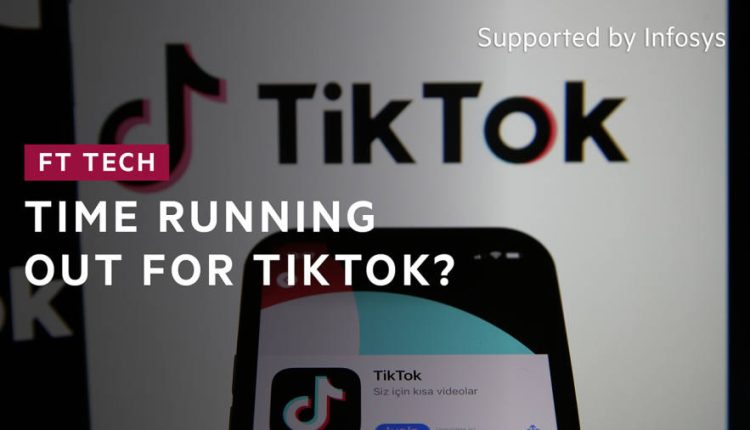You can enable subtitles (captions) in the video player
Could time really be up for TikTok? On the face of it that seems highly improbable for the most downloaded mobile app in 2022, boasting at least a billion active users. It has recently launched a new shopping feature to expand its online retail business, challenging rivals like Shein and Amazon for a greater share of the multitrillion dollar e-commerce sector.
But recent privacy and data security concerns have been raised about the integrity of the video-sharing platform built around a powerful advanced AI algorithm, all owned by Beijing-based company ByteDance. Critics worry about the potential surveillance and malign influence that China could exert over TikTok’s users at a time of deteriorating relations between east and west.
While ByteDance denies being under government control, it is subject to a sweeping law which compels Chinese citizens and organisations to support and assist state intelligence. And that’s one reason why more than a dozen nations have introduced full, partial, or public sector bans on TikTok. India banned TikTok in 2020, citing a threat to national security after fighting broke out on the Sino-Indian border.
Other countries, including the US, UK, Australia, Canada, France, and New Zealand, have banned the app from government devices as well as Wi-Fi networks in universities and colleges. In 2022, journalists in the US and at The Financial Times, including me, discovered that staff at TikTok had secretly accessed and tracked their mobile phones after they’d written critical stories about the platform and its treatment of employees.
The White House has said that ByteDance should sell TikTok or face the kind of federal ban attempted by the then-president Donald Trump in 2020. But China has introduced export restrictions, making any sale of the app subject to official approval, something the state has already said it would oppose.
And enforcing a ban among the 150mn users the company claims to have in the US would be problematic, with a potential threat to freedom of expression risking legal challenges and possible retaliatory trade sanctions abroad. Even some critics in the US admit that a block aimed at protecting democracy could do more harm than good, as domestic politicians are also using TikTok to engage with significant numbers of young American voters.
Read the full article here

